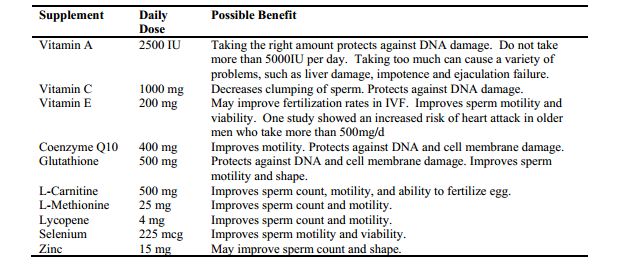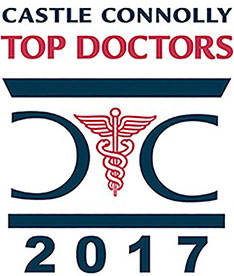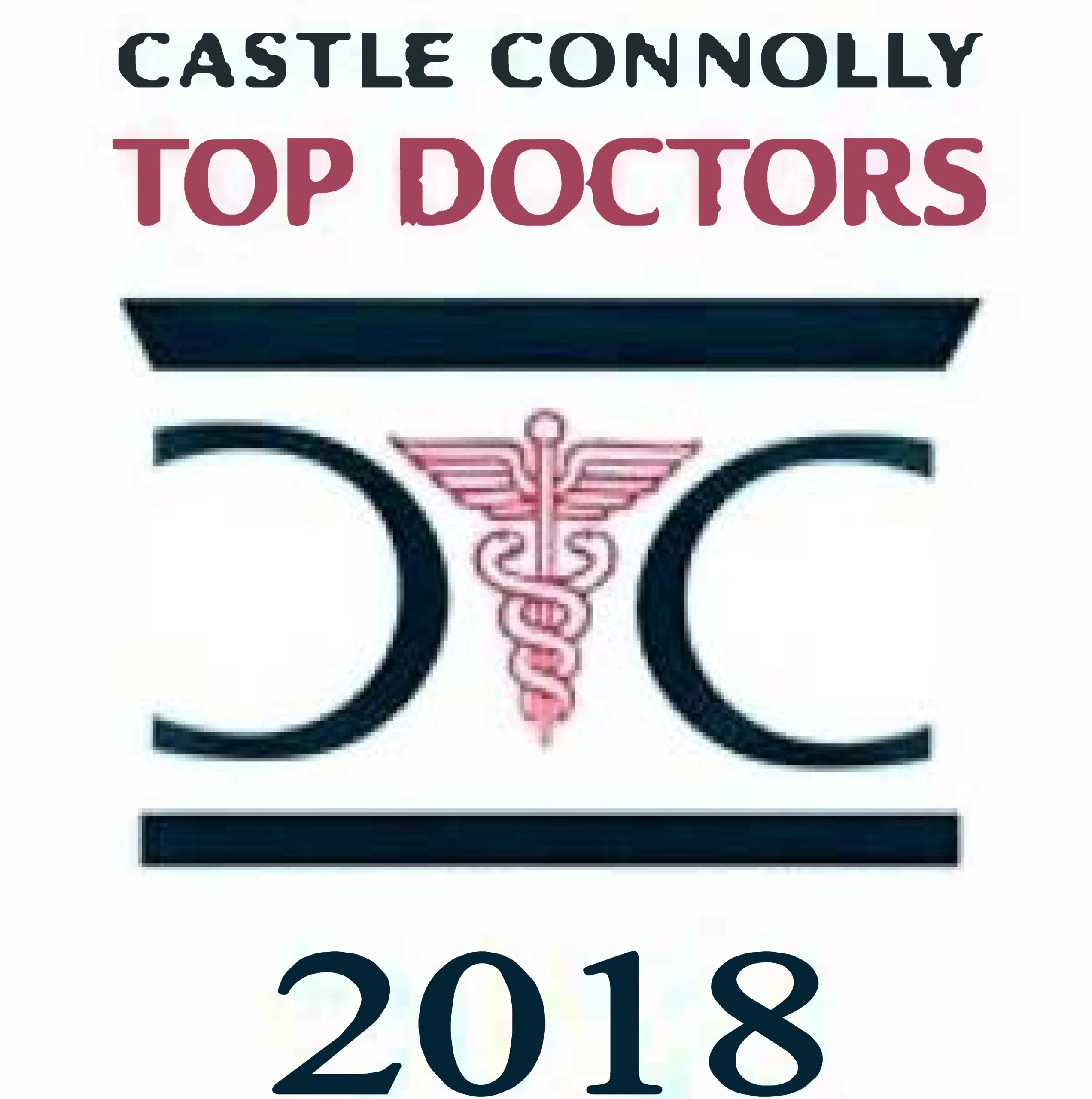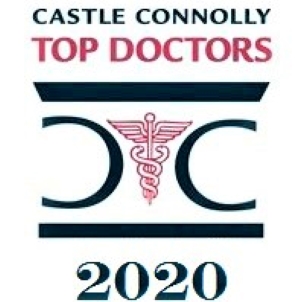What you can do to improve your fertility
- First and foremost, STOP SMOKING! Tobacco use damages the DNA in sperm, creates abnormal sperm, and decreases sex drive and sperm concentration. Quitting will also reduce your risk of several types of cancer, heart attacks, respiratory infections and emphysema.
- Stop using all illegal drugs, such as cocaine, opiates, and marijuana: Marijuana is especially known to cause an abnormal sperm shape, to significantly reduce sperm count and motility, and to decrease the size of the testicles.
- Do not use anabolic steroids or any other male hormonal supplements such as Testosterone or “T”. They are powerful suppressors of sperm production. They are also known to reduce testicular size.
- Cut back alcohol intake to 7 -10 drinks per week. A “drink” is a 12 oz beer, a 4 oz glass of wine, or 1oz of liquor. It may help to avoid hot tubs and saunas while you and your partner are trying to become pregnant.
- Similarly, be aware of the lengthy use of laptops directly on your lap.
- If you are on any of the drugs listed in the table above that cause infertility, talk with the doctor who prescribed them about substituting it for another drug, if possible. Keep in mind that the risk of stopping some of these medications may outweigh the benefit of increasing your fertility.
- Try some of the vitamin supplements listed in the table below: “Fertile One,” made by Coast Reproductive, “Fertility Blend for Men,” sold at GNC, and “ProXeed,” are products that contain many of these supplements in just one pill. Several studies on these supplements have come to different conclusions about their effectiveness. They have a low risk of harmful side effects. Many of these supplements, especially antioxidants, have been shown to increase sperm motility, improve DNA and membrane quality, and improve sperm’s ability to fertilize an egg to some degree. However, it may not be worth it to you to spend money on supplements that may or may not make a noticeable difference.
Supplements that may improve sperm characteristics:

References:
- Battista N. Rapino C, et al. “Regulation of Male Fertility by the Endocannabinoid System.” Molecular and Cellular Endocrinology. 2008; 286S: S17-S23 Colagar A, Marzony E, Chaichi M. “Zinc Levels in Seminal Plasma are Associated with Sperm Quality in Fertile and Infertile Men.” Nutrition Research. 2009; 29: 82-88.
- Elshal M, El-Sayed I, et al. “Sperm Head Defects and Disturbances in Spermatozoal Chromatin and DNA Integrities in Idiopathic Infertile Subjects:Association with Cigarette Smoking.” Clinical Biochemistry. 2009; 42: 589-594.
- Geva E, Bartoov B, Zabludovsky N, et al. “The Effect of Antioxidant Treatment on Human Spermatozoa and Fertilization Rate in an In Vitro Fertilization Program.” Fertil. Steril. 1996; 66(3): 430-434.
- Goyal A, Chopra M, et al. “The Effects of Dietary Lycopene Supplementation on Human Seminal Plasma.” BJU international. 2007; 99(6): 1456-1460.
- Grego E, Iacobelli M, et al. “Reduction of the Incidence of Sperm DNA Fragmentation by Oral Antioxidant Treatment.” J Andrology. 2005; 26(3): 349-353.
- Kumar R, Gautam G, Gupta N. “Drug Therapy for Idiopathic Male Infertility: Rationale Versus Evidence.” Journal of Urology. October, 2006; 176: 1307- 1312.
- Marinelli D, Gaspari L, Pedotti P, Taioli E. “Mini-Review of Studies on the Effect of Smoking and Drinking Habits on Semen Parameters.” Int. J. Hygiene and Environmental Health. 2004; 207: 185-192.
- Sigman M. “Medications that Impair Male Fertility.” Sexuality, Reproduction and Menopause. May, 2007; 5(2): 11-16.
- Speroff L, Glass R, Kase N. Clinical Gynecologic Endocrinology and Infertility. Lippincott, Williams and Wilkins. Baltimore, MD. 2005. 7th ed: 1135-1174.
- Zhou X, Liu F, Zhai S. “Effect of L-carnitine and/or L-acetyl-carnitine in Nutrition Treatment for Male Infertility: A Systematic Review.” Asia Pacific Journal of Clinical Nutrition. 2007; 16(1): 383-190.








